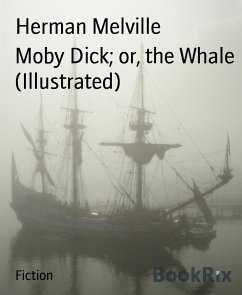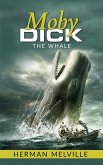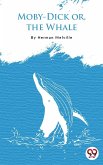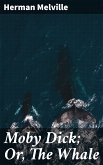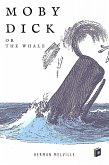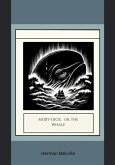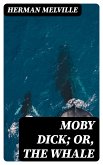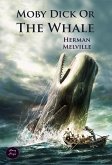Moby-Dick; or, The Whale (1851) is the sixth book by American writer Herman Melville. The work is an epic sea story of Captain Ahab's voyage in pursuit of Moby Dick, a great white whale. It initially received mixed reviews and at Melville's death in 1891 was remembered, if at all, as a children's sea adventure, but now is considered one of the Great American Novels and a leading work of American Romanticism. The opening line, "Call me Ishmael," is one of the most recognizable opening lines in Western literature. Ishmael then narrates the voyage of the whaleship Pequod, commanded by Captain Ahab. Ahab has one purpose: revenge on Moby Dick, a ferocious, enigmatic white whale which on a previous voyage destroyed Ahab's ship and severed his leg at the knee. The detailed and realistic descriptions of whale hunting and the process of extracting whale oil, as well as life aboard ship among a culturally diverse crew, are mixed with exploration of class and social status, good and evil, and the existence of God.
Dieser Download kann aus rechtlichen Gründen nur mit Rechnungsadresse in A, B, CY, D, DK, EW, E, FIN, F, GR, IRL, I, L, M, NL, P, S, SLO, SK ausgeliefert werden.

